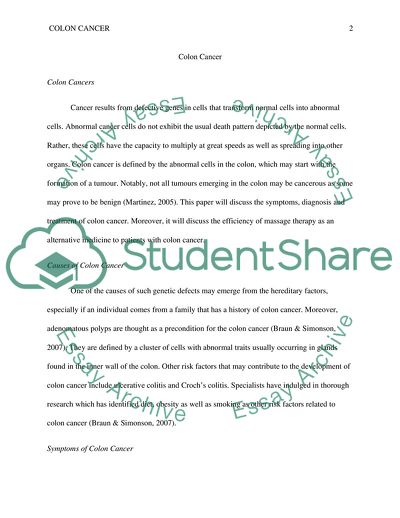Cite this document
(Colon cancer Research Paper Example | Topics and Well Written Essays - 1250 words, n.d.)
Colon cancer Research Paper Example | Topics and Well Written Essays - 1250 words. https://studentshare.org/medical-science/1837770-causes-of-colon-cancer
Colon cancer Research Paper Example | Topics and Well Written Essays - 1250 words. https://studentshare.org/medical-science/1837770-causes-of-colon-cancer
(Colon Cancer Research Paper Example | Topics and Well Written Essays - 1250 Words)
Colon Cancer Research Paper Example | Topics and Well Written Essays - 1250 Words. https://studentshare.org/medical-science/1837770-causes-of-colon-cancer.
Colon Cancer Research Paper Example | Topics and Well Written Essays - 1250 Words. https://studentshare.org/medical-science/1837770-causes-of-colon-cancer.
“Colon Cancer Research Paper Example | Topics and Well Written Essays - 1250 Words”. https://studentshare.org/medical-science/1837770-causes-of-colon-cancer.


